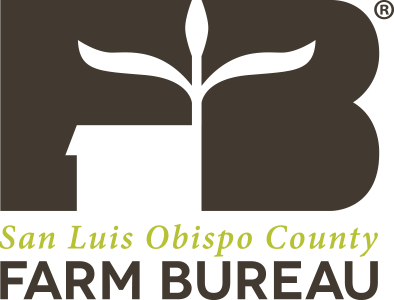As the U.S. House of Representatives continues discussion on proposed immigration legislation, the California Farm Bureau Federation says it cannot support a part of the bill that addresses agricultural employees.
Contained within H.R. 4760 is funding for a border wall and addresses internal immigration enforcement and the Deferred Action for Childhood Arrivals (DACA). It also includes an Agricultural Guestworker Act (AG Act), which would create a new agricultural visa program.
The AG Act, in its current form, contains numerous features that would harm current immigrant employees on whom San Luis Obispo County and California farms and ranches depend. Additionally, it would create a mandatory E-Verify electronic work-place eligibility system, affecting many current agricultural employees.
The biggest concern is that the AG Act does not address those workers who are already here. H.R. 4760 establishes the H-2C worker program, which includes caps on the number of workers allowed to immigrate for farm labor - unlike the current H-2A worker program, which has no caps.
As written, H.R. 4760 would require current workers to leave their jobs, leave the country, and trust that they would be issued a visa and be readmitted, and enter the pool of temporary visa holders.
California has the largest agricultural organization (California Farm Bureau Federation) and is the largest agricultural state in the nation. While the elements in the AG Act may be well suited for other areas of the country, it would be harmful to agriculture in San Luis Obispo County and California.
Although the American Farm Bureau Federation is supporting the bill, the California Farm Bureau Federation has come out in opposition. The San Luis Obispo Farm Bureau will take an official position on H.R. 4760 by February 28, and will take steps to voice our concerns.
“As now written, the AG Act just wouldn’t work for California farms and ranches,” CFB President, Jaime Johansson said. “There’s a longstanding need to create a workable temporary-visa program for agriculture that provides greater stability and opportunities for agricultural employees and their families. The AG Act would cause too much disruption for our employees and our communities.”
Johansson said CFBF and other organizations have offered a number of recommendations for creating a more practical and flexible program to allow people from other countries to enter the U.S. to work on farms and ranches.
“We know the American Farm Bureau and other national agricultural organizations have decided to support the AG Act, and they have every right to do so,” Johansson said. “But as the largest agricultural organization in the largest agricultural state, we must advocate for a solution that works for our members and their employees. For California farmers and ranchers, the combination of the AG Act and E-Verify would actually worsen chronic agricultural employee shortages. We will press for a better solution.”



